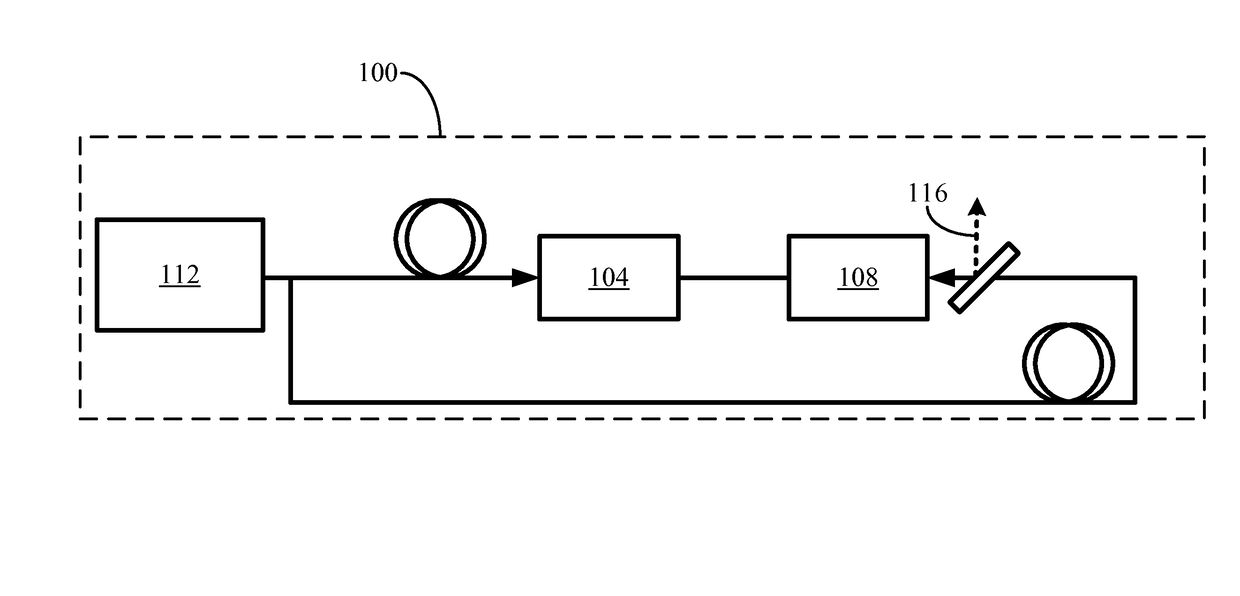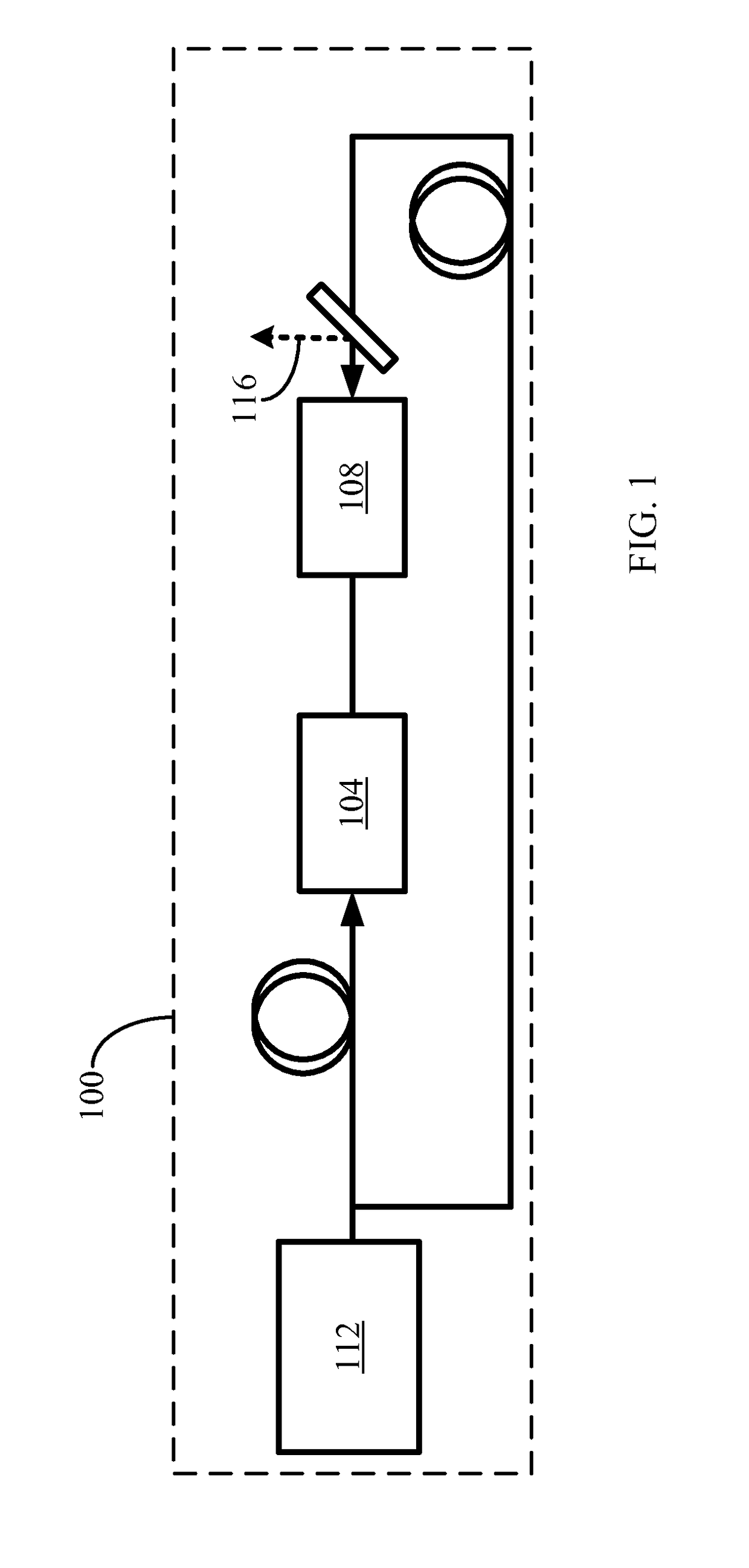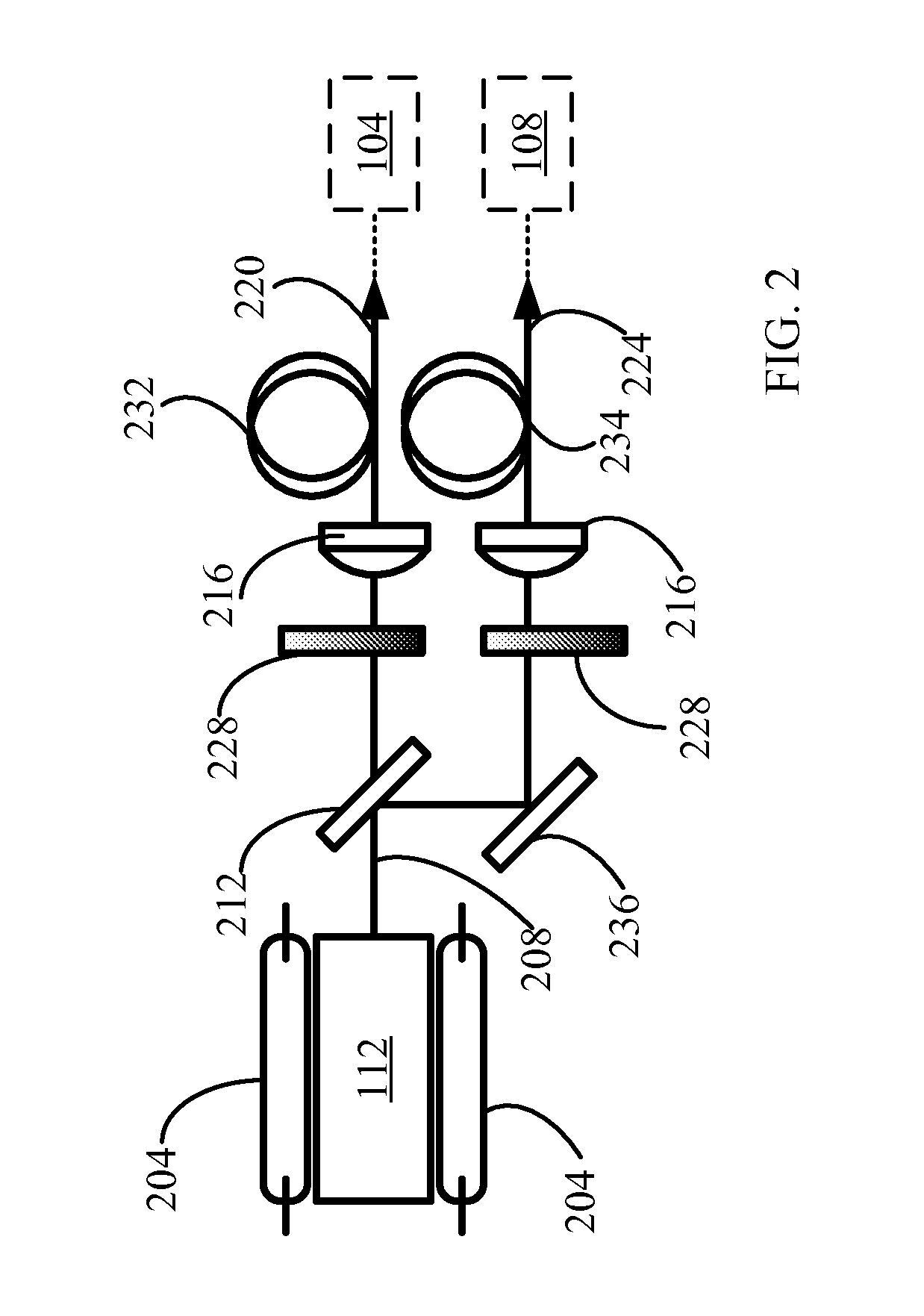Laser systems and related methods
a laser system and laser technology, applied in the field of laser systems, can solve the problems of complex electronic systems, low pulse energy, and difficulty in synchronization, and achieve the effects of reducing amplified spontaneous emission, facilitating the generation of the required output energy, and reducing the gain in transverse dimension
- Summary
- Abstract
- Description
- Claims
- Application Information
AI Technical Summary
Benefits of technology
Problems solved by technology
Method used
Image
Examples
Embodiment Construction
[0029]Reference will now be made in detail to the exemplary embodiments of the invention, examples of which are illustrated in the accompanying drawings. Wherever possible, the same reference numbers will be used throughout the drawings to refer to the same or like parts.
[0030]FIGS. 1-8 illustrate various exemplary embodiments of a high-energy, sub-nanosecond laser. The term “high-energy, sub-nanosecond laser,” as used herein, may refer to a laser that can provide an energy of 0.1 to 10 J with pulse duration of 10 to 900 psec. In general, a high-energy, sub-nanosecond laser can provide, for example, more effective micro machining, scientific spectroscopy, and medical treatments than a nanosecond laser commonly used. Accordingly, availability of a high-energy, sub-nanosecond laser may facilitate improvement of the existing applications and support development of new laser applications.
[0031]Microchip lasers are frequently used to “seed” the amplifying devices. ASE typically limits th...
PUM
 Login to View More
Login to View More Abstract
Description
Claims
Application Information
 Login to View More
Login to View More - R&D
- Intellectual Property
- Life Sciences
- Materials
- Tech Scout
- Unparalleled Data Quality
- Higher Quality Content
- 60% Fewer Hallucinations
Browse by: Latest US Patents, China's latest patents, Technical Efficacy Thesaurus, Application Domain, Technology Topic, Popular Technical Reports.
© 2025 PatSnap. All rights reserved.Legal|Privacy policy|Modern Slavery Act Transparency Statement|Sitemap|About US| Contact US: help@patsnap.com



